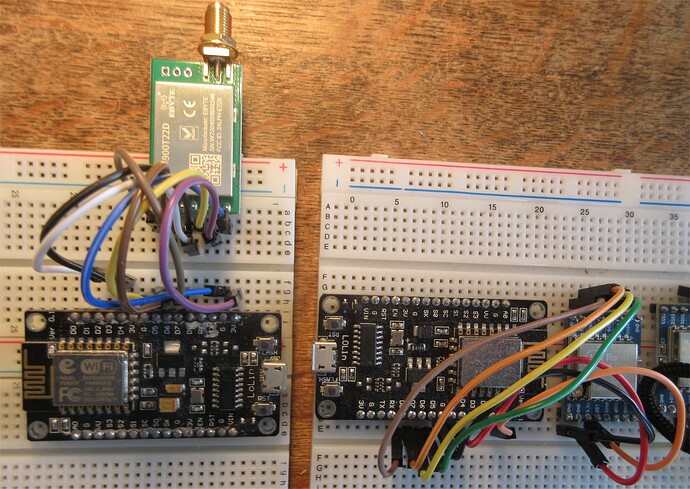I'm studying in the field of electronics and communication and we have a device that needs to be remotely controlled. 100 pieces of this device are produced annually. We will use arduino nano, lora, esp8266/32, neo 6m gps to control this device and to get location information. But I hope a microcontroller instead of arduino nano can do the job~. What I need to do is to order the nano from the center to turn the device on and off, and what I need to do is to get the location information from the node and transfer it to the internet via esp. But here I got a warning that working with nano and esp would not be an industrial situation. Which microcontroller do you think will work for me instead of nano? and do I need to design a wifi module myself instead of esp8266? How do I go about designing (what materials should I use? ). Thanks
If you have ESP8266, why do you also need Nano?
With ESP32, same question.
Mixing Nano with either type of ESP seems over-complex. You have multiple voltages to deal with, and the added complexity of synchronisation and communication between the two MCU.
What is Nano adding to your design that ESP can't take care of?
It is not difficult to design an MCU module, given a few years training and experience as an electrical engineer, specializing in digital electronics and microprocessor technology. For WiFi, especially with on board antennas, special training in radio technology is highly recommended.
You will need to study the manufacturer's data sheets and application notes very carefully.
That question cannot be accurately answered without a lot more information. There are hundreds of devices that could do the job, the problem is in the requirements. You need to write a specification sheet of what you need. You also need several years experience after you get your degree to fully comprehend what you are asking.
Can you explain why that would be?
you mention ESP microcontrollers and LoRa
have a look at the TTGO LoRa32 board which has a ESP32 processor (with on board WiFi, Bluetooth Classic and BLE), a LoRa module and a OLED display - it saves the wiring problems one get when connecting LoRa modules to an ESP32 or other microcontroller
I have used the TTGO LoRa32 board both in LoRa point to point tests and LoRaWAN uplink/downlink to the Things V3 cloud server
EDIT: how will the microcontroller communicate with your device which requires remote control?
At such low volume, using an off-the-shelf module like an Arduino is probably the most economic.
As the others have said, why do you need both an esp8266/32 and a Nano?
Can an esp8266/32 do it all?
I think an ESP32S2MINI2U would be all you need
to meet the original specification of post 1 LoRa module is required
the problem is one can end up with a mess of wires connecting the micro to the LoRa module with all the problems of loose/poor connections, etc , e.g. ESP8266 connected on left to a Ebyte E220 and on the right to a RA-02 module
I tend to prefer modules with microcontroller and LoRa on same PCB, e.g. the TTGO LoRa32, Adafruit Feather 32u4 lora, MKRWAN 1300 lora, etc
they tend to be more expensive than individual modules connected by wires but are more reliable (unless soldered onto a breadbaord)
This topic was automatically closed 180 days after the last reply. New replies are no longer allowed.
